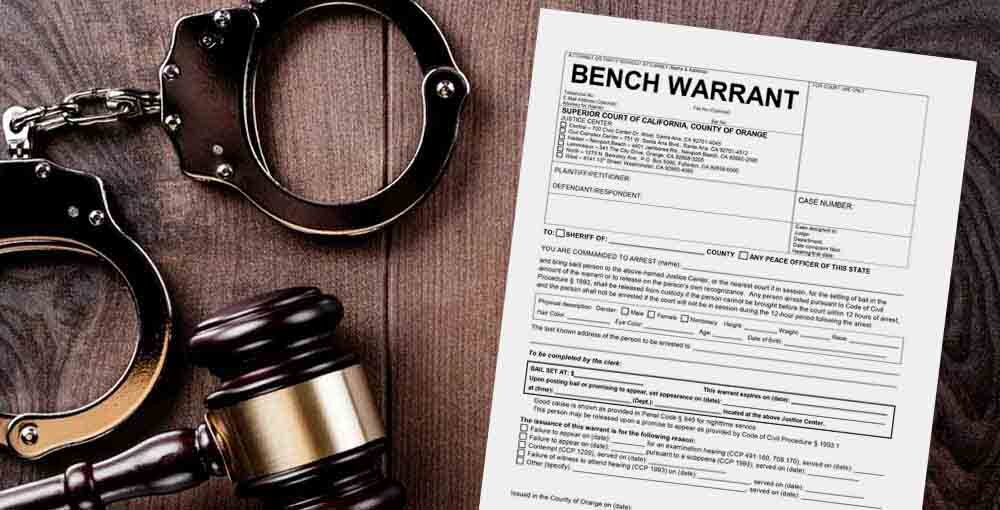Will a California Warrant Search Show Old Warrants?

There is a lot to know about doing a California warrant search. Many people undergo this process every single day, but they might not do the research they need to do to ensure that they get every bit of information that they need in order to be sure that they don’t walk away empty-handed.
Doing a bit of research so you can be sure that you’re getting exactly the kind of information that you’re looking for is incredibly important. If you do the wrong kind of search, there’s a good chance that you’re not going to get the information that you need.
There are a lot of different searches that you can do and a lot of ways to go about them. So, if you’re looking for information about old warrants that are no longer executable how would you go about that? Is it even possible?
Generally speaking, where there’s a will, there’s a way. Even so, is this task going to be one of impossible efforts? Or, could one find this information quickly and easily if they just know where to look? These are the questions that we’re looking at today.
Table of Contents
Making Sure You’re Making the Right Kind of Search
As we mentioned, there is a lot of information kept by the criminal justice system in the United States. There are ways to access a lot of this information if you know where to look for it, and most of the time it’s pretty easy to find.
That being said, because there is so much information that is kept by the criminal justice system, making sure that you’re looking for the right thing is of the utmost importance. Looking for the wrong kind of information can lead you down a rabbit hole you didn’t intend to go down without ever getting the information you needed.
To make this task easier on you, we’re decided to break it down. If you’re looking to find out if:
- Someone is suspected of a crime, you’ll want to do a warrant search.
- Someone has been arrested for a crime, you’ll want to do an arrest record search,
- Someone has been tried for a crime, you’ll want to look into court records.
- Someone has been found guilty of a crime, you’ll want to look at criminal records.
It’s really that easy to make sure that you’re looking in the right place. Each of these types of records might seem similar but they do mean entirely different things in practice. It can be pretty easy to mix them up, so let’s break them down even further to make it easier.
- If someone has a warrant, that means that they were a suspect.
- If there’s something on their arrest record, that means that they were arrested for something.
- Arrests don’t mean a lot in many cases. Sometimes people get arrested for being drunk in public and just get thrown in the drunk tank and released in the morning when they’re sober.
- You do not need a warrant to be arrested, but you can be arrested because of a warrant.
- If there’s something on someone’s court record, that means they’ve been tried.
- Someone doesn’t need to be guilty to be tried in court.
- You don’t need to be arrested to be tried in court if you turn yourself in, but either an arrest or a warrant has to happen in order for someone to appear in criminal court.
- If there’s something on someone’s criminal record, that means that they were tried and found guilty of a crime.
- In the United States, everyone must be tried in court before being sentenced. That means that something has to be added to the court record before its added to the criminal records.
This little guide should help make deciding what kind of records you need to look into a lot easier. This can be the most difficult part of the job for you. If you need warrant information, read on because we’ll be going over those in more detail. Otherwise, you might want to look into how to find other kinds of records.
The Kind of Information You can Expect from a Warrant Search
When you search for warrants, there’s probably some information that you’re specifically looking for. This kind of information may or may not be realistic when you search for a warrant, and it may not be included on a warrant at all.
Different states do things differently because the only thing that’s federally required is that warrants are in place. In the state of California, here’s what’s generally required on a warrant:

- The name and/or reasonable description of the suspect.
- The county in which the suspect is believed to have committed to crime.
- The date the crime is believed to have been committed.
- The crimes the suspect is believed to have committed.
- The signature of the approving judge or magistrate.
- The name of the office of the issuing party.
- The county where the warrant was issued.
- The date the warrant was issued.
Now, that’s a lot of information. When you’re searching for a warrant, you might expect for all of that to be available. Unfortunately, that’s usually not the case. In most warrant searches, you’ll be able to find the:
- Name of the suspect.
- Physical description.
- Crimes they are believed to have committed.
- Date of the crimes.
- Issuing county.
While this might not seem like enough information, generally it’s all you really need when you’re looking into someone. Knowing what crime law enforcement believes they’ve committed makes a big difference when you’re looking into someone’s background.
There’s a world of difference between embezzlement, assault, and arson so knowing exactly what crime the person in question is wanted for means that you’ll have an easier time deciding whether or not you’ll allow them in your life.
Knowing the judge that signed the warrant might sound like it would be useful but ultimately it makes no difference. If there’s a warrant that means that someone who has the authority to approve a warrant has done so, and that’s enough for these purposes.
Can You Find Old Warrants?
Now to the meat of the article and the answer to your questions. Can one find old warrants when they’re doing a warrant search? The short answer is yes, but also no. The longer answer will take a bit of explaining, so bear with us.
We’re gonna start off by telling you the way that you absolutely will not be able to find old warrants. That method is searching through law enforcement databases that can be found on the sheriff’s department’s website.
When a warrant is resolved, whatever that means for the specific situation, it is promptly sealed away from public view. When you’re looking on law enforcement websites you’ll only ever be able to find active warrant information because of this.
Law enforcement is already spotty enough with warrant information as it is. Not every county makes these databases readily available to the general public. Some counties make you send a picture of your I.D. and will only tell you if you have a warrant, and some counties don’t provide this information at all.
If you want the best chance of finding old warrant information, you’re going to want to use something like a warrant search service or a personal background check service. Both of these services are going to be invaluable tools for your search.
Both warrant search services and personal background check services pull information from public records databases all over the country, meaning that you can get information from everywhere ranging from Alaska to Florida and everything in between.
Because of the way that these services work they have a much higher chance of finding old warrant information that you would have just trying to check through law enforcement databases. They check all over the internet and usually leave no rock unturned.
In fact, these services are really your only hope for finding this kind of information at all. Old warrants aren’t easy to find if you don’t know where to look for them because they’ve been sealed.
The only way to find them once they’ve been sealed is to check through old databases, databases that may or may not be easy to find as a regular person.
In order to see how an old warrant was resolved, you would need to look at the court and criminal records, so if you want old warrant information you might just want to start with that and save some time.
Living in the Age of Information
Living in the age of information is both a gift and a privilege. Being able to find any information that you could possibly need in a matter of minutes is nothing short of mind-boggling. If you wanted to find the same level of information at any point in the past, you’d need to look through lengthy books and probably not even find what you were looking for.
Warrant searches as they are today weren’t possible until about thirty years ago when the internet started becoming more and more prevalent, and it’s a good thing that it did so we can now find all the warrant information we need without ever having to talk to the police.

 Protect Your Rights With a Criminal Defense Attorney
Protect Your Rights With a Criminal Defense Attorney  How to Find a Crime Victim Lawyer
How to Find a Crime Victim Lawyer  Criminal Defense Laws – Know Your Rights
Criminal Defense Laws – Know Your Rights  Criminal Laws in Columbus, Georgia
Criminal Laws in Columbus, Georgia  How a Public Data Search Can Save You Money
How a Public Data Search Can Save You Money  Are Arrest Records Available Online?
Are Arrest Records Available Online?  The Evolution of Traffic Laws: How Road Regulations Have Changed Over Time
The Evolution of Traffic Laws: How Road Regulations Have Changed Over Time  Are LLCs More Cost-Effective Than Corporations? Exploring the Costs of Formation
Are LLCs More Cost-Effective Than Corporations? Exploring the Costs of Formation  Ready to Ship Engagement Rings in Singapore: A Perfect Choice for Your Special Moment
Ready to Ship Engagement Rings in Singapore: A Perfect Choice for Your Special Moment  Vehicle Accident Lawyers: Expert Legal Support for Your Claims
Vehicle Accident Lawyers: Expert Legal Support for Your Claims